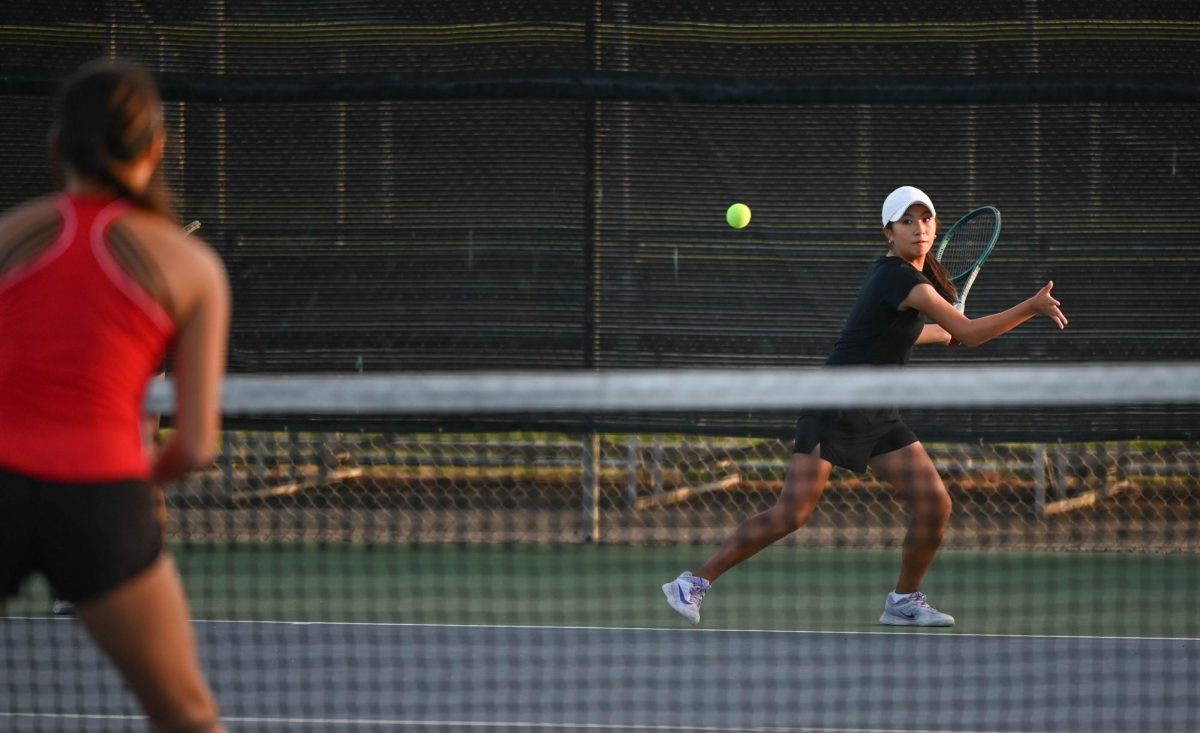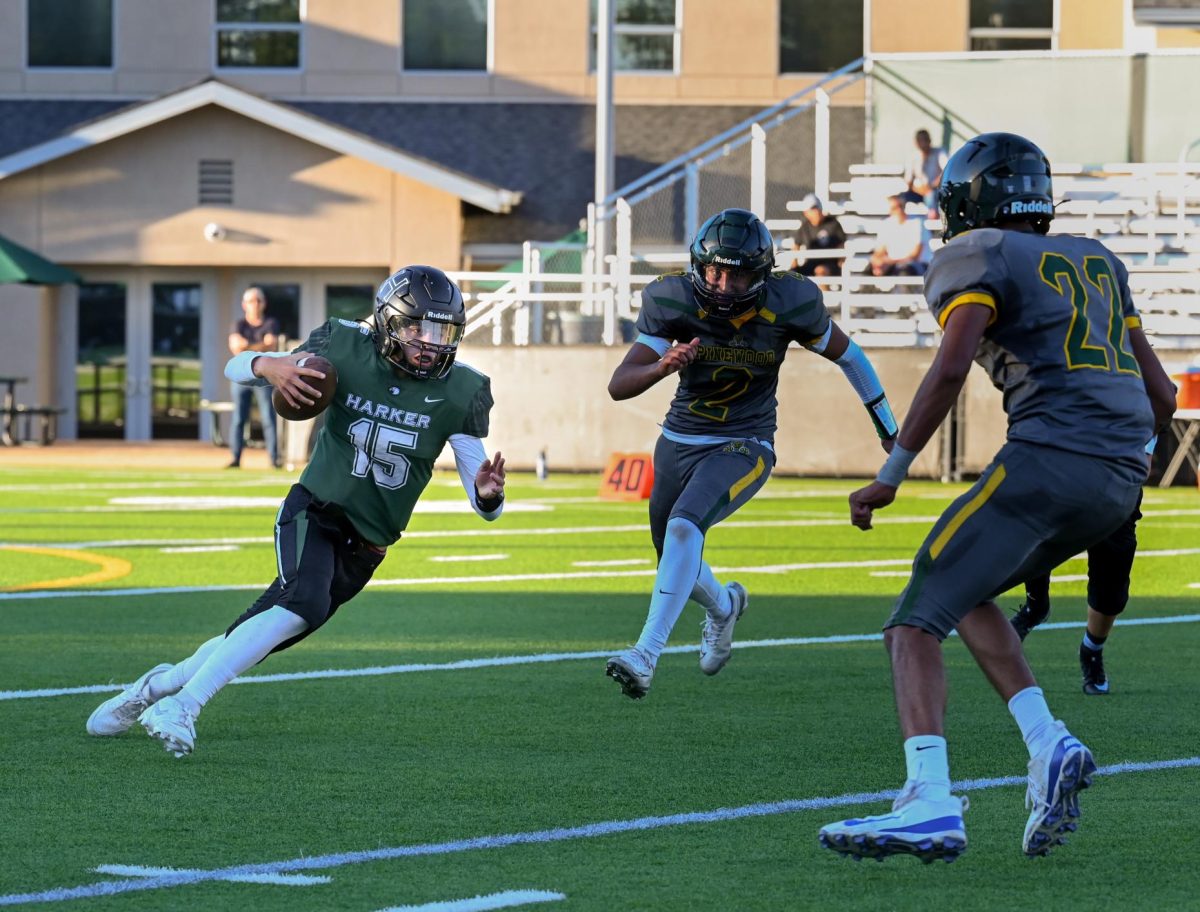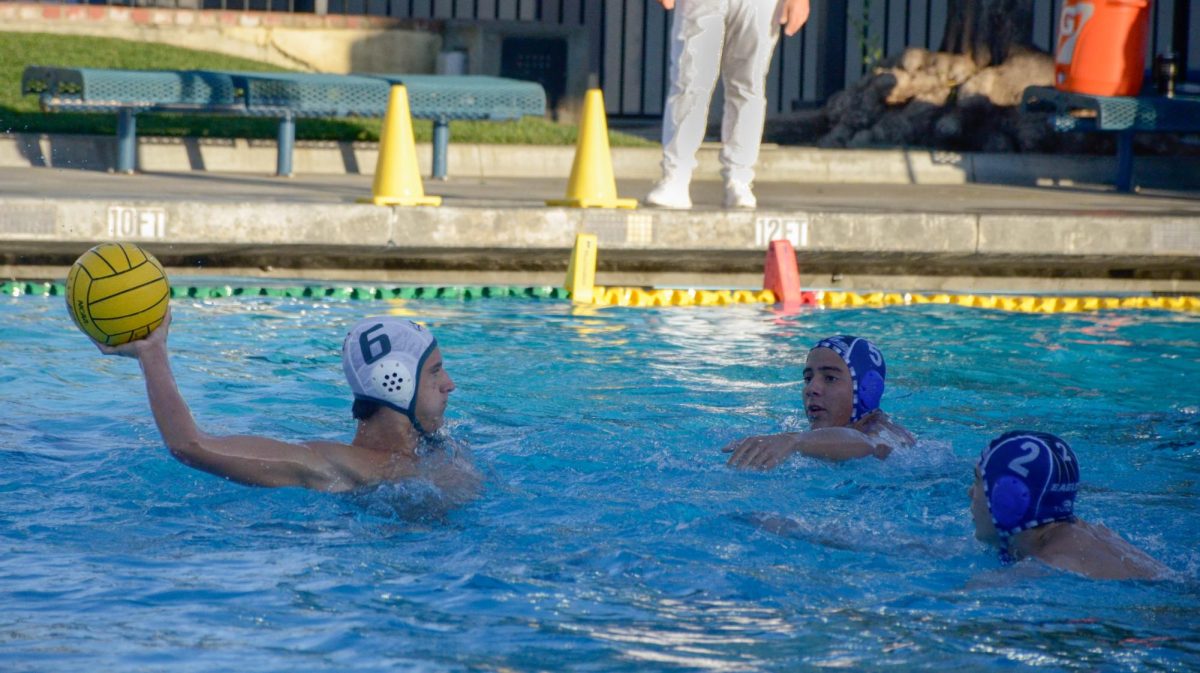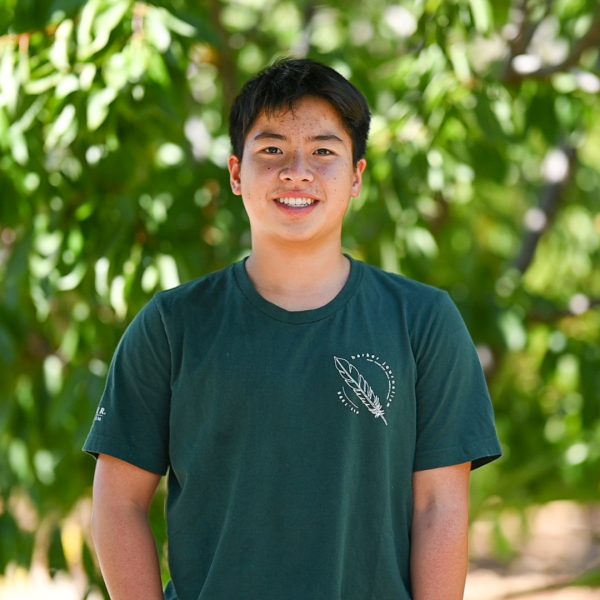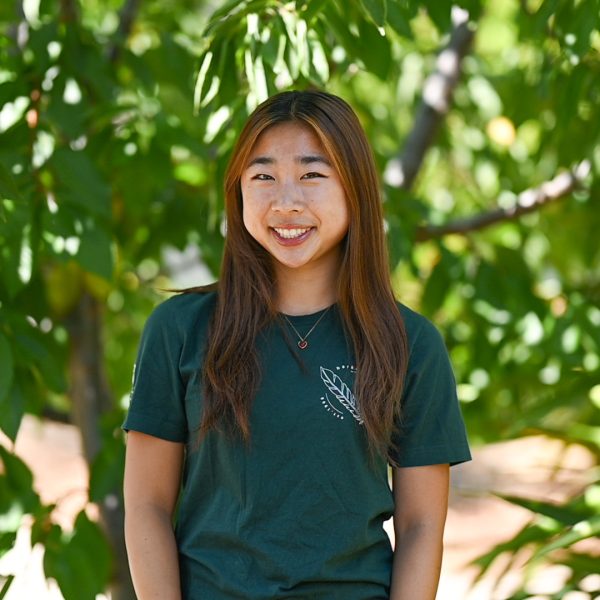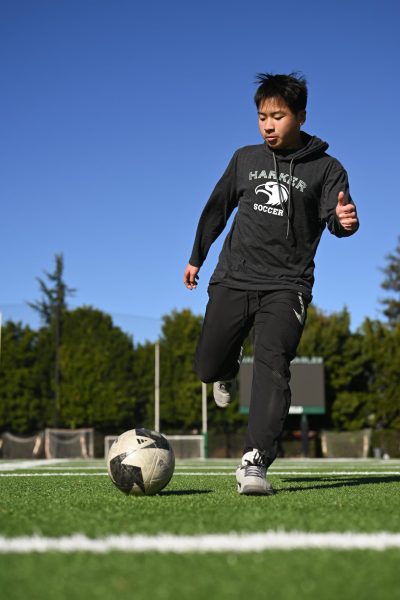
What’s the first thing you think when you hear the words “junior varsity?”
Let me guess: Second string. Not good enough. A backup plan.
I used to think that, too. Three times over, actually. Water polo, soccer, swimming—ninth grade was a hat trick of JV placements that seemed like failures to me. Though, when I look back, those “setbacks” built the athlete I am today.
When most high school athletes join a sports team, their eyes fixate on one objective: making varsity. I was once that ambitious frosh, eager to prove myself at the highest level of competitive play. But my journey through three junior varsity sports has proven to me that there’s so much more to development as an athlete than simply carrying the name varsity on my back.
Soccer was a prominent example. The extended water polo season meant I missed varsity tryouts, which was an outcome I hadn’t anticipated.
On JV, without the pressure of varsity expectations, I played the full 90 minutes each game, improving drastically after every game. Rotating through each position, from defense and midfield to striker, allowed me to experiment and understand the game from every angle. Now, I’ve found my role as a center midfielder and how I fit into the team’s dynamic, thanks to the freedom JV gave me to explore and grow.
Here’s the final piece of the puzzle: my former JV teammates are now beside me on varsity. The time we spent together on JV, learning and growing in a less pressurized environment, helped us build chemistry that carries over to varsity. Those bonds make us stronger as a team today, proving that JV is not an impediment but simply a foundation for success.
Water polo was another eye-opener. My JV season wasn’t just about trying to score as many goals as possible. It was about finding my voice with the six others in the pool with me. Every JV drill, every attempt and every small victory built something bigger. When your teammates help you run a play for an hour in a row to perfect it, that builds trust. When you finally nail that shot you’ve been practicing, that builds confidence for you to play at a higher level.
On JV, we were free to make mistakes and learn from them, to experiment, and to grow. Nobody kept track of the times you missed the ball or the times your opponents scored on you. Most of the time, the stands were basically empty, transforming each game into a pure learning experience without the weight of expectations. We found the space to try that risky play, to attempt a challenging shot, or to test new formations.
The best part was watching everybody improve. In soccer, we went from struggling with basic passing to executing challenging plays. In water polo, some of our players had never even touched a water polo ball in their life. However, by the end of the season, we were coordinating offensive and defensive plays like a seasoned team and bouncing back from our setbacks. By season’s end, everybody on the team had their moment to shine, something that rarely happens on varsity, where playing time often goes to top performers.
On varsity, where every minute counts and the pressure is high, you might never get the chance to break through those initial judgements. But JV gives you the gift of time: to mess up, learn and see your teammates for who they really are. When we made it to varsity together, we brought a connection that made us stronger as a team.
What if we stopped seeing JV as just a failure, and not even just as a stepping stone? What if instead, we saw it as a training ground? A place where athletes are built, not just trapped?
JV is not about being “not good enough” for varsity. It’s about having the mindset to become more than enough, and building a foundation to turn a group of uncertain players into a family of believers who can dominate in the next season’s varsity level. It’s where I gained confidence in my skills and trust in my teammates–lessons that laid the foundation for our success on varsity.
For me, JV wasn’t the backup plan.
It was where I needed to be to discover my potential.


















![“[Building nerf blasters] became this outlet of creativity for me that hasn't been matched by anything else. The process [of] making a build complete to your desire is such a painstakingly difficult process, but I've had to learn from [the skills needed from] soldering to proper painting. There's so many different options for everything, if you think about it, it exists. The best part is [that] if it doesn't exist, you can build it yourself," Ishaan Parate said.](https://harkeraquila.com/wp-content/uploads/2022/08/DSC_8149-900x604.jpg)




![“When I came into high school, I was ready to be a follower. But DECA was a game changer for me. It helped me overcome my fear of public speaking, and it's played such a major role in who I've become today. To be able to successfully lead a chapter of 150 students, an officer team and be one of the upperclassmen I once really admired is something I'm [really] proud of,” Anvitha Tummala ('21) said.](https://harkeraquila.com/wp-content/uploads/2021/07/Screen-Shot-2021-07-25-at-9.50.05-AM-900x594.png)







![“I think getting up in the morning and having a sense of purpose [is exciting]. I think without a certain amount of drive, life is kind of obsolete and mundane, and I think having that every single day is what makes each day unique and kind of makes life exciting,” Neymika Jain (12) said.](https://harkeraquila.com/wp-content/uploads/2017/06/Screen-Shot-2017-06-03-at-4.54.16-PM.png)








![“My slogan is ‘slow feet, don’t eat, and I’m hungry.’ You need to run fast to get where you are–you aren't going to get those championships if you aren't fast,” Angel Cervantes (12) said. “I want to do well in school on my tests and in track and win championships for my team. I live by that, [and] I can do that anywhere: in the classroom or on the field.”](https://harkeraquila.com/wp-content/uploads/2018/06/DSC5146-900x601.jpg)
![“[Volleyball has] taught me how to fall correctly, and another thing it taught is that you don’t have to be the best at something to be good at it. If you just hit the ball in a smart way, then it still scores points and you’re good at it. You could be a background player and still make a much bigger impact on the team than you would think,” Anya Gert (’20) said.](https://harkeraquila.com/wp-content/uploads/2020/06/AnnaGert_JinTuan_HoHPhotoEdited-600x900.jpeg)

![“I'm not nearly there yet, but [my confidence has] definitely been getting better since I was pretty shy and timid coming into Harker my freshman year. I know that there's a lot of people that are really confident in what they do, and I really admire them. Everyone's so driven and that has really pushed me to kind of try to find my own place in high school and be more confident,” Alyssa Huang (’20) said.](https://harkeraquila.com/wp-content/uploads/2020/06/AlyssaHuang_EmilyChen_HoHPhoto-900x749.jpeg)





